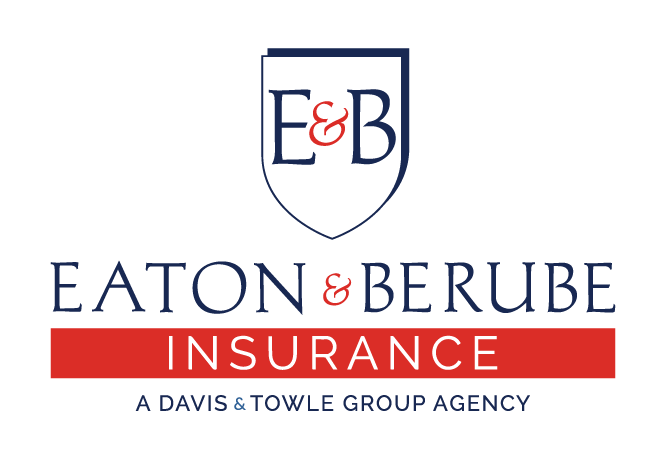Summer is here, and for many families, along with the warm weather and conclusion of another school year comes a highly anticipated summer vacation. Whether you are traveling a few hours from home or venturing across the country, you may find it necessary to rent a car, and it’s important to familiarize yourself with rental car insurance coverage before departing for your destination.
When renting a car, you may wonder what would happen in the event of an accident. Would you have coverage? How much? Under the rental contract or your auto insurance policy? Like any other claim, coverage will vary depending on the circumstances surrounding the incident, but rental car insurance can be complicated, as there are several different places to look for coverage. The five areas below will help you better understand where to look for rental car coverage, and the effectiveness of each one in protecting you.
 1. The Rental Contract – Naturally, the first place you may look for rental car coverage is the rental contract itself. Although this contract does offer coverage, it can be costly and easily lost by engaging in an activity that violates the agreement. For instance, if you enjoy a glass of wine with dinner, have someone drive whose name is not listed on the rental agreement, or drive over an unpaved road, you would violate a typical rental car contract, losing coverage. However, depending on the specific rental agreement, it may be the only way to cover certain types of claims. It’s best to consult your independent insurance agent when confronted with a confusing rental car coverage situation, to ensure that you are protected in the event of any type of claim.
1. The Rental Contract – Naturally, the first place you may look for rental car coverage is the rental contract itself. Although this contract does offer coverage, it can be costly and easily lost by engaging in an activity that violates the agreement. For instance, if you enjoy a glass of wine with dinner, have someone drive whose name is not listed on the rental agreement, or drive over an unpaved road, you would violate a typical rental car contract, losing coverage. However, depending on the specific rental agreement, it may be the only way to cover certain types of claims. It’s best to consult your independent insurance agent when confronted with a confusing rental car coverage situation, to ensure that you are protected in the event of any type of claim.
2. Your Personal Auto Insurance Policy – Aside from the contract, you can also find rental car coverage under your personal auto insurance policy, since the rental is typically in your name. In other words, if your name is on your personal auto policy, and you are the person who signs the rental contract, coverage under your personal auto policy will automatically trigger in the event of an accident. However, not all personal auto policies will cover SUVs, vans, or pickups being used for business, and your personal auto policy typically will not provide coverage for a rental car accident if you do not carry comprehensive and collision coverage on at least one of your vehicles. Some personal auto policies also exclude loss of use and diminution of value coverage, so it’s best to discuss your options with your independent agent to ensure that you understand your policy’s exclusions and limitations, and how they could affect your rental car insurance coverage.
3. Your Commercial Auto Insurance Policy – If using a rented vehicle for business purposes, you may also find coverage under your commercial auto policy. If possible, it’s best to have your employees use the business name on the rental agreement and pay with a company credit card if you plan to rely on your business auto policy for primary rental car insurance coverage. Again, there may be exclusions and limitations, like a loss of use daily limitation and a diminution of value exclusion. For instance, if the car rental company holds you responsible for loss of use, you will be liable for the revenue the company loses if the car is in the shop for a period of time after an accident. If your rental car agreement requires you to pay for diminution of value, you will be responsible for any reduction in resale value for the rented vehicle that results from an accident. Purchasing the car rental company’s Loss Damage Waiver (LDW) and Collision Damage Waiver (CDW) will typically free you of these responsibilities.
4. Umbrella Insurance Policies – In the unfortunate event of a substantial rental car liability loss, you can look toward your personal or commercial umbrella insurance policy for excess coverage. This type of policy will provide additional coverage once you reach the liability limits on your personal or business auto policy. In addition, if the accident occurs outside of the United States, your umbrella policy may cover the international loss, while your personal or business auto insurance policy typically will not.
5. Credit Cards – If your insurance doesn’t cover a rental car accident, you may wonder if your credit card provides any coverage. This can vary from one card to another, as credit card coverage is not standardized, so it’s important to familiarize yourself with your card’s terms and conditions. For instance, some credit cards will only cover a rental car loss if you have declined the LDW/CDW and are not using your personal or business auto policy to help pay for the claim. To activate this coverage, the cardholder must be the primary renter and pay for the rented vehicle with this card. However, if you violate any terms of the rental agreement, like driving after consuming one alcoholic beverage or driving on unpaved roads, your credit card coverage will likely be voided. Many credit cards also exclude rented SUVs or off-road vehicles, and some exclude weather-related damage like flood and hail.
Over the years, the liabilities assumed under rental agreements have expanded, leaving renters more vulnerable, but there are still ways you can protect yourself. The following tips will help you minimize your risks when renting a vehicle:
- Review the car rental company’s agreement carefully and ask in advance exactly what types of damage you will be held responsible for. Be sure you and/or your employees understand the different ways that this agreement can be violated, causing you to lose coverage.
- To be fully covered, your safest bet is to purchase the LDW/CDW coverage to protect against exposures not covered by your personal or business auto policy. These exposures typically include loss of use, diminution of value, and storage fees, although some loss of use coverage may be available under your business auto policy.
- Carry a copy of your personal or business auto policy with you on your trip, in case you need to access it in the event of an accident. This will allow you to show proof of insurance as well as review your policy’s exclusions and limitations to determine how much rental car insurance coverage it provides.
- Inspect the rented vehicle before leaving the parking lot and document any damages you discover, whether by writing notes, taking photographs, or both. Alert the car rental company to these damages and be sure they are noted in your rental agreement.
- Above all, contact your independent insurance agent with any questions you may have. Rental car insurance coverage has evolved over the years and can be confusing to many drivers. Your insurance agent will assist you with coverage recommendations and help guide you through the process of obtaining sufficient coverage for your rented vehicle.
